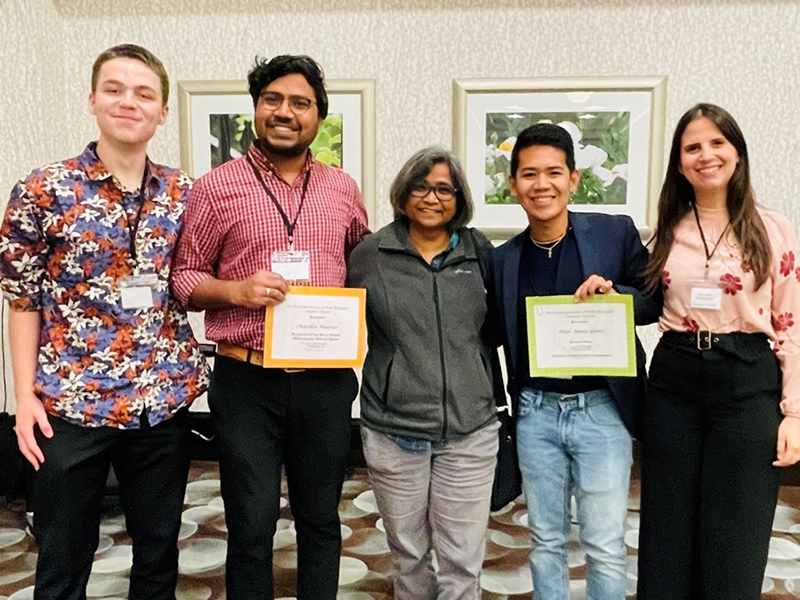
Chandan Maurya presented his research work, titled "In-silico analysis of rice Target of Rapamycin (TOR) mutations generated by CRISPR/Cas9 targeted mutagenesis," and won the Henry Daniell International Scholar Award from the American Society of Plant Biologists-Southern Section during the banquet held in March at Fayetteville.
The award is a competitive, one-time, merit-based honor that recognizes outstanding international plant biologists. Maurya was selected by the ASPB-SS committee for demonstrating to make a positive contribution to plant biology, which is shown by his scientific research work, publications, previous awards, presentations and assumed leadership in the field.
Maurya is a young scientist from India. After completing his Ph.D. work, he continued his research career at the U of A in 2020. His research is focused on understanding the signaling pathways of the Target of Rapamycin and sucrose-nonfermentation1-related protein kinase1 in rice through gene editing. These two protein kinases work together to control cell growth under energy-rich and deprived conditions and play a critical role in cell survival. Maurya is advised by Vibha Srivastava of the Department of Crop, Soil and Environmental Sciences.
Three other students from the Srivastava lab also presented their research projects in the ASPB-SS meeting: Colten Nichols, an undergraduate student in chemistry and biochemistry; Maria Clara Faria Chaves, a master's student in crop, soil and environmental sciences; and Peter James Gann, a doctoral student in cell and molecular biology, won the second place in the graduate student oral competition.
In addition to the HD-ISA, Maurya also received the travel award from the Office of the Provost and the Office for Faculty Affairs that supported his participation to present his invited talk entitled "Characterization of rice Target of Rapamycin (TOR) mutants generated by CRISPR/Cas9 mediated targeted mutagenesis" at the International Conference of Plant and Animal Genomics held in January in San Diego, California.
About ASPB: ASPB is a 501(c)(3) professional society devoted to advancing plant science research and education. It publishes three world-class journals and organizes conferences and other educational activities that are key to the advancement of science. The Southern Section includes Alabama, Arkansas, Florida, Georgia, Kentucky, Louisiana, Mississippi, North Carolina, Oklahoma, South Carolina, Tennessee, Texas, Virginia and West Virginia.
Topics
- Awards
- Research & Innovation
- Science
- Events
- Dale Bumpers College of Agricultural, Food & Life Sciences
- Fulbright College of Arts & Sciences
- Graduate School & International Education
- Department of Chemistry and Biochemistry
- Department of Crop, Soil and Environmental Sciences
- Cell and Molecular Biology Program
Contacts
Vibha Srivastava, professor
Department of Crop, Soil and Environmental Science
479-575-4872,
Fred Miller, agricultural communications
University of Arkansas Division of Agriculture
479-575-5647,